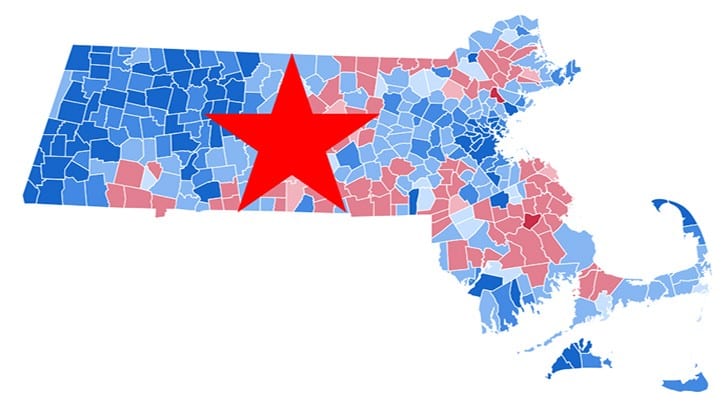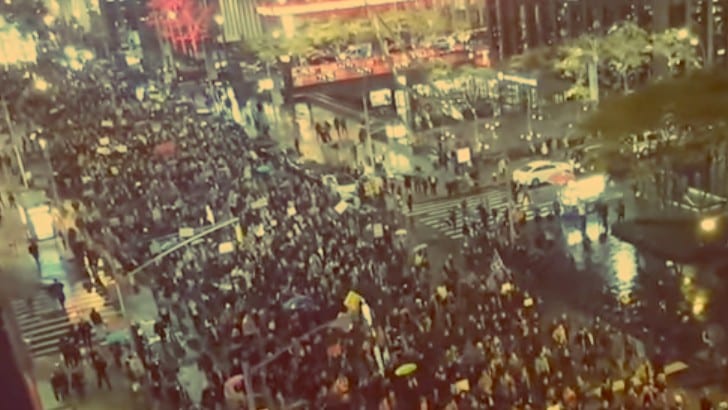If we want to live in a democracy, we all have to take to the streets … and stay there
Jason Pramas
A Home in the Digital World
Republican Party
THE RIGHT QUESTION FOR THE BROAD LEFT
On July 5, start asking the Democrats, “What policies will help working families?” The patriotic season is upon us. With it comes the arrival of the 2020 presidential […]
A WINDOW INTO THE STATE HOUSE
Rep. Mike Connolly’s blog offers a critical look behind the curtain of Mass politics The Massachusetts State House is not a bastion of democracy. I think a growing […]
VOTING AS A SOCIALIST IS STILL HARD (IN THE MASSACHUSETTS OF 2018)

Plus an endorsement for Michael Capuano for Congress (MA 7th District)
August 28, 2018
BY JASON PRAMAS @JASONPRAMAS
It’s never easy being a socialist in the United States. And at no time is it more difficult then come election season. Because neither of the two major parties—hard-right ravings to the contrary taken as given—is socialist. Both Republicans and Democrats are capitalist. There have been many attempts to form major left-wing anti-capitalist parties over the last couple hundred years. Some, like two I’ve participated in—the Green Party US and the Labor Party—have been national efforts. The former is still struggling on gamely, though Mass affiliate Green-Rainbow Party currently does not have official party status—having failed to win 3 percent of the vote for any state or national candidate in the last election or to enroll 1 percent of registered voters. The latter petered out over a decade back. There have also been state-level efforts like the Peace and Freedom Party in California—which, for one reason or another, haven’t spread to other states.
The received political wisdom is that the major parties have set up so many structural roadblocks over their many decades in power that it’s impossible for any of the smaller so-called third parties to achieve major party status. And from my experience that received wisdom has been correct. So far.
Where does that leave a socialist like me? Well, I have a few options. None of them ideal… unless we manage to change our political system to allow for small parties to more easily become big ones. I could go back to the Greens. I could join one of the tiny socialist parties that runs candidates from time to time like Socialist Alternative. I could join the somewhat larger Democratic Socialists of America—which is not a party but a pressure group that throws its weight behind the most left-wing candidates it can find or field, mainly in the Democratic Party. I could help try to revive an effort for a “fusion” ballot in Massachusetts with the Working Families Party (of New York and several other states). Such a move would create a formation that would be allowed to support larger parties’ candidates (i.e., the Democrats for all intents and purposes) without sacrificing independence. But allowing that would require a change in Bay State law… and a 2006 attempt to make the necessary change failed. I could help start a new left-wing party in the Boston area, and try to win some municipal races before moving on to state and national contests. Or I can join the majority of Massachusetts voters and be an independent. Registering as “unenrolled” in our state’s parlance. Currently the simplest and easiest option. And a reasonable one for a journalist like myself since I remain independent of all political parties.
So like many other left-wingers, I’ve bitten the proverbial bullet and have been unenrolled for most of my adult life. But it’s a dissatisfying place to situate myself politically. Because functionally it means that I’m voting for whoever comes closest to my beliefs on a case-by-case basis. Not usually for a slate. As minor parties like the Greens rarely have the wherewithal to run candidates for multiple offices in one voting district. Just individual candidates. And should those candidates win, they are basically on their own. Meaning any political gains they make typically won’t outlast their terms of office.
Being unenrolled also means that I’m almost never voting for a candidate I fully support. Unless a maverick left-wing candidate happens to run for one office or other in my area—usually in a nonpartisan local race—I’m nearly always forced to compromise. And, sure, voting always involves compromises. Even for dyed-in-the-wool Democrats and Republicans. Yet casting such votes usually requires that I make a big compromise. A fundamental one, as the candidates on offer all share the major flaw of backing a political economic system—capitalism—that I don’t believe in. Even though I’m forced to participate in that system by nature of being born in a capitalist country in this time and place.
At this juncture, some readers will naturally ask, “Well, why vote at all?” After all, I’ve got more than a little bit of a libertarian streak in the sense that I’m a big fan of liberty. And many left libertarian traditions—notably anarcho-syndicalism—push for direct democracy at the local level in place of representative democracy at every level. I’ve always had a soft spot for such views. But I have never found them practical for a nation-state of over 300 million souls amid a planetary population of over seven billion and rising.
Ultimately, as messed up as capitalist democracy is, I refuse to take my franchise for granted. For much of human history, people like me didn’t get any say at all in how they were governed. Even the US restricted voting to white males with property at its inception. Only after generations of grassroots political struggle did we get universal suffrage for everyone 18 or older. So as long as we remain an even nominally representative democracy, I’m going to keep voting.
Great, but how do I go about picking candidates to support? Not easily, and I simply don’t vote in races where none of the candidates are good by my lights. Still, taking next week’s primary as an example, let me shed some light on my internal decision-making process. For sake of space, I’ll think aloud about only the hottest current local political fight—the 7th District Congressional race between incumbent Michael Capuano and challenger Ayanna Pressley—in the manner I normally do when preparing to vote as an independent socialist. Mainly by considering the candidates’ political positives and negatives from my perspective.
Capuano’s positive policy points include backing Medicare for All for many years and consistently anti-war foreign policy stands. Strikes against him include taking campaign contributions from the real estate and biotech lobbies. Pressley’s positive points include taking decent positions on issues like housing and immigration—including recent support for abolishing Immigration and Customs Enforcement. Strikes against her include more hawkish foreign policy views. And a long Intercept piece on the race paints her as the chosen candidate of corporate Democratic leadership. Someone who fakes left, but will likely break right when it matters. A big negative in my book.
For me, Capuano is one of the last old line social democrats in Congress. Meaning he’s about as left-wing as he can be without leaving the Dems. He’s also been in office a long time and holds key committee positions that would be lost with the election of a first-term opponent. He’s brought a lot of money to his district that benefits the working class, and he’s taken a lot of stands he didn’t have to take in defense of that class.
Pressley has done much less as a politician thus far. According to Politico, her “biggest projects have ranged from supporting pregnant teens and revamping sex education in schools to expanding liquor licenses in minority neighborhoods.” Admittedly while holding a seat in a political body, the Boston City Council, that has very little power. So not an entirely fair comparison, but food for thought nonetheless. However, given Capuano’s predictable and significant lead in the polls and in funding, I can’t shake the feeling that Pressley’s really doing groundwork for her next big race more than expecting to win this one.
For these reasons and many more besides, I have to back Michael Capuano in the Democratic primary for the 7th District Congressional seat.
But all that said—and there’s much more to say—in backing Capuano, I’m still backing a capitalist. This is not a guy who is pushing for workers to own the means of production. This is a guy who has consciously decided that the best path is to shave the rough edges off of capitalism to make it less harmful to workers. While allowing billionaires to control the commanding heights of our political economic system. He may not like it. But he’s decided that’s the best that can be done under the current circumstances.
I respect that decision, even if I disagree with it. Yet whatever I think about individual candidates, I always have to come back to the same problem: What can I do to help ensure that there is a mass socialist (and anti-racist and feminist and environmental and anti-war, etc., etc.) party that can field candidates with the experience and funding to win enough electoral races to change the face of politics in Massachusetts and the United States for the better?
And my answer? For the moment, I’m writing for a growing audience about the kind of political changes I’d like to see, and looking for opportunities to help build the kind of political party that could bring those changes to fruition. There are seeds of what I’m searching for in Democratic Socialists of America and Socialist Alternative and many other existing socialist and anarchist and green formations besides. But none of them presently fits the bill for me. All I can say is that I’ll know the party I’m looking for when I see it. And jump on board as soon as that happens. But for now, I’ll just muddle through at election time in the fashion I’ve described above. As best I can.
Readers interested in engaging in discussion and debate on this and related matters in various public forums can contact me at execeditor@digboston.com.
BROKEN MEDIA, BROKEN POLITICS

If Mass journalists were doing their jobs, Baker would not be so popular
May 1, 2018
BY JASON PRAMAS @JASONPRAMAS
It’s always funny to hear that Charlie Baker is a very popular governor… The most popular governor in the country at the moment, according to polls. Because he doesn’t do anything very differently than his predecessor Deval Patrick did. Or than Mass House speaker Robert DeLeo does. Or than most any state Democratic leader when it comes down to core economic issues—with the exception of the leaders with little actual power.
Baker, Patrick, DeLeo, and all their ilk in both major parties essentially follow the same game plan. They work to lower taxes for those most able to afford them, cut desperately needed social programs to the bone, and give away as much money as possible to giant corporations.
Much of the rest of what they do is posturing for the various constituencies that make up their particular electorates. And that’s the stuff that gets the most media coverage. Which is not to say they’re necessarily insincere about such activity. But they’re elected to represent the wealthy interests that run the Commonwealth, and the work they do for that most important constituency is always their top priority.
So when Patrick and Baker, for example, shovel over $1.5 billion in free public money at the biotech industry or arrange millions in tax breaks and direct state aid for huge companies that don’t need them on an ongoing basis—with DeLeo’s blessing in both administrations—to the extent those acts get coverage, they’re presented as done deals that are “good for the economy.” Then it’s on to the next press spectacle of the day. Events where they can “show leadership” and the like. As when there’s a snowstorm. In Massachusetts, a northern state noted for its frequent snowstorms. And the current governor gets on TV and says “stay indoors during the snowstorm.” That is apparently showing leadership.
Which explains Baker’s high numbers, I think. Simple public relations. Accentuate the positive, eliminate the negative, and all that. With most of the major news outlets gamely playing along. And his numbers are higher than Patrick’s were because he’s a white guy in a super racist state that likes to think it’s super anti-racist.
That’s what results in people that don’t pay attention to politics—including the vast majority of white voters—going, “Oh, Baker’s such a nice man” when pollsters ask their opinion of him. More than they did with Patrick. No doubt Baker is a nice man in person or whatever. Lots of people who do bad things when they have power are personally “nice.” Like, I’m sure when some buddy of his from childhood needs money, he’ll give it to him. Or at least loan it to him. But when all the legions of people he doesn’t know personally need good jobs with benefits, need free higher education, need major improvement to infrastructure like the MBTA—because of entrenched structural inequality—that’s a different story.
A story whose narrative you can hear if you listen to Baker’s remarks to the 2018 Mass Republican Convention in Worcester last weekend.
Stripping away obligatory pleasantries and nods to major supporters, the speech was aimed at the same white middle-class suburbanites who remain the base of the state Republican Party. Baker addressed them directly at one point while enumerating the “successes” of his administration: “We offered early college programs, our Commonwealth Commitment program, which dramatically reduces the cost of a college education. And increases in state scholarships to make the price of college more affordable for moderate- and middle-income families.”
See, he thinks they’re so important he mentioned them twice in a row: “moderate- and middle-income families.” No word about low-income families, though. At all. Not even a nod. Sure, working families are discussed. But in Republican-speak, “working families” isn’t code for “working class” as it often is for Democrats. It means “those who work.” As opposed to “those who do not work.” Like all those “lazy shiftless” folks that used to be called working class in more honest times. And those totally nonindustrious [ha!] immigrants. And the “undeserving” poor in general. Everyone who supposedly lives off the bounty of “our”––the good “moderate- and middle-income” people’s, the “taxpayers’”—labor.
But no mention of his most important constituency, the one he actually works for, either. “Small business” is mentioned a number of times. But not major corporations and the rich people that own them.
Still, they’re there. Lurking behind all of Baker’s remarks. Especially when he said several things that are completely and obviously false to anyone who follows politics reasonably closely. Like taking credit for “dramatically” reducing the cost of a college education. When public higher education is an absolute disaster in Massachusetts. When both the working-class families he seemingly deplores and the middle class he purports to represent—immigrant and nonimmigrant alike—are forced to run up ruinous amounts of debt just to put kids through schools that were once so cheap as to nearly be free. While tuition and fees keep getting raised year after year. Under both Democratic and Republican administrations.
The rich and the corporations are there because public higher ed, like virtually every other beneficial government program, is being starved for operating funds. To fatten that 1 percent’s coffers. Because politicians like Baker make a virtue out of cutting taxes. Slashing budgets. Laying off public workers. Privatizing anything they can get away with. As Baker himself has certainly been doing at the much-beleaguered MBTA. Another public service he addressed in Worcester, saying: “We took on the special interests at the MBTA. Created a Fiscal Management and Control Board. And saved taxpayers hundreds of millions of dollars, and we’re rebuilding its core infrastructure.” While, in the real world, that same public transportation infrastructure continues to fall apart for lack of the needed direct infusion of state funds.
Is everything Baker does bad? No. Is he as dangerous as federal counterparts like President Donald Trump? Or the feral reactionary theocrat Scott Lively that fully 28 percent of Mass Republican delegates just chose to run against Baker in a primary this fall? No. Not yet at least.
But that’s not the point.
The point is that a polity where a Charlie Baker can be incredibly popular is a broken polity. And a news media that enables him is a broken news media. Baker does not represent even the interest of the white middle class that keeps voting him into office, let alone the working class as a whole. A media that was doing its job would make that patently clear. Every hour of every day. Yet it does the opposite. Because it too is controlled by the same rich and powerful interests that control politics and ensure pols like Baker keep getting elected. Whether those pols call themselves Republicans or Democrats.
So to fix politics, we have to fix the media. And I can’t address how that might be done in a single column. But my colleagues and I are trying our damndest to do it in practice at DigBoston and the Boston Institute for Nonprofit Journalism. And the fix starts with journalists who are independent and strive to tell the truth about problems in media and the political system. Every hour of every day. Beyond that, there’s much more to say. So, I’ll plan to talk about specific potential fixes in future columns and editorials.
Apparent Horizon is syndicated by the Boston Institute for Nonprofit Journalism. Jason Pramas is BINJ’s network director, and executive editor and associate publisher of DigBoston. Copyright 2018 Jason Pramas. Licensed for use by the Boston Institute for Nonprofit Journalism and media outlets in its network.
TEMPORARY RADICALS? DISAFFECTED DEMS NEED TO STAY IN THE STREETS AFTER THE GOP MENACE IS BEATEN BACK

November 27, 2016
BY JASON PRAMAS @JASONPRAMAS
There is little agreement on the broad American left. But the ascension of Donald Trump to the top of the political heap caused a virtual panic from the most conservative corporate Democrats to the hardest core anarchists and communists. Which resulted in a sudden, and probably brief, unity of purpose across the various factions. Then, quickly converting their excess emotional energy into useful activity as is typical in times of crisis, hundreds of thousands of people poured into the streets in the days after the election to protest the very idea that a controversial billionaire businessman and reality TV personality is now president of the United States. Including many Democrats who have never attended a protest in their lives.
This a welcome development. Many important social movements perennially suffer from a lack of grassroots participation. So the sudden entry of huge numbers of infuriated mainstream Dems to oppositional politics is positive on the balance.
If, that is, these new entrants remain willing to take direct action in defense of democracy and fight for a host of necessary reforms—from serious attempts to curb global warming to winning real national healthcare to putting racist police under community control.
As long as the new Republican administration remains somewhere within the bounds of traditional American politics, and doesn’t attempt to crush protest outright, then there is a lot of room for the full panoply of transformative social movements to maneuver.
Assuming Trump is unable to solve the central contradiction of his campaign—making big promises to both fellow CEOs and working Americans alike—there is a strong chance that the Republicans will lose control of one or both Congressional houses in two years, and the presidency in four.
Aside from conservatives gaining as many as three seats on the Supreme Court in that period, much of any damage that Trump may do can then be undone. It’s likely that the Democrats will be back in power by 2021.
The problem being, which Democrats? Will it be a newly-emboldened grassroots-led social democratic party? Or will it be the same neoliberal center-right party that was just resoundingly defeated after failing to heed the populist feedback it was receiving from significant parts of its base?
I hope that the former possibility wins out. At the moment, however, it’s far more probable that the currently discredited Democratic leadership will use its power and connections to simply reassert its authority, raise a ton more money, and work to win back Congressional majorities and the Oval Office without changing its political line a jot.
Which leaves a question for all the angry Democrats currently in the streets for social justice: Are you just fighting to get corrupt and elitist Democratic Party leaders back in command in DC? Or are you all willing to go further and fight for the establishment of genuine left-wing political alternatives in both electoral politics and in daily life?
If the recent past is any guide, many of you will stop fighting for racial justice, women’s liberation, LGBT rights, a living wage, public jobs programs, national healthcare, clean energy infrastructure, etc., the moment the Democrats win back the presidency. You’ll figure “great, everything is back to normal.”
But the politics of most leading Democrats—activist progressives like Elizabeth Warren excepted—is one that results in never-ending war, insufficient action on global warming, expanding corporate globalization, gradual privatization of successful public programs, widening poverty, and continuing the so-called Drug War, the prison-industrial complex, and racist policing.
So real social change will not occur unless grassroots Dems stay in the streets and fight their own leadership for primacy—until we can build a more fair, just, and humane society.
That strategy will necessitate either taking over the Democratic Party and forcing it left, or starting a major new left party. In addition to winning myriad (and quite necessary) issue-specific campaigns.
If all that can be accomplished, America and the planet have a chance. If not? If the Republicans hold power for many years? Or the corporate Democrats come back to power and continue allowing Wall Street to drive national policy?
Then we’re going to be in a very bad place very fast.
Apparent Horizon is syndicated by the Boston Institute for Nonprofit Journalism. Jason Pramas is BINJ’s network director.
Copyright 2016 Jason Pramas. Licensed for use by the Boston Institute for Nonprofit Journalism and media outlets in its network.
Check out the Apparent Horizon Podcast on:
iTunes, Google Play Music, Stitcher, TuneIn, and YouTube
